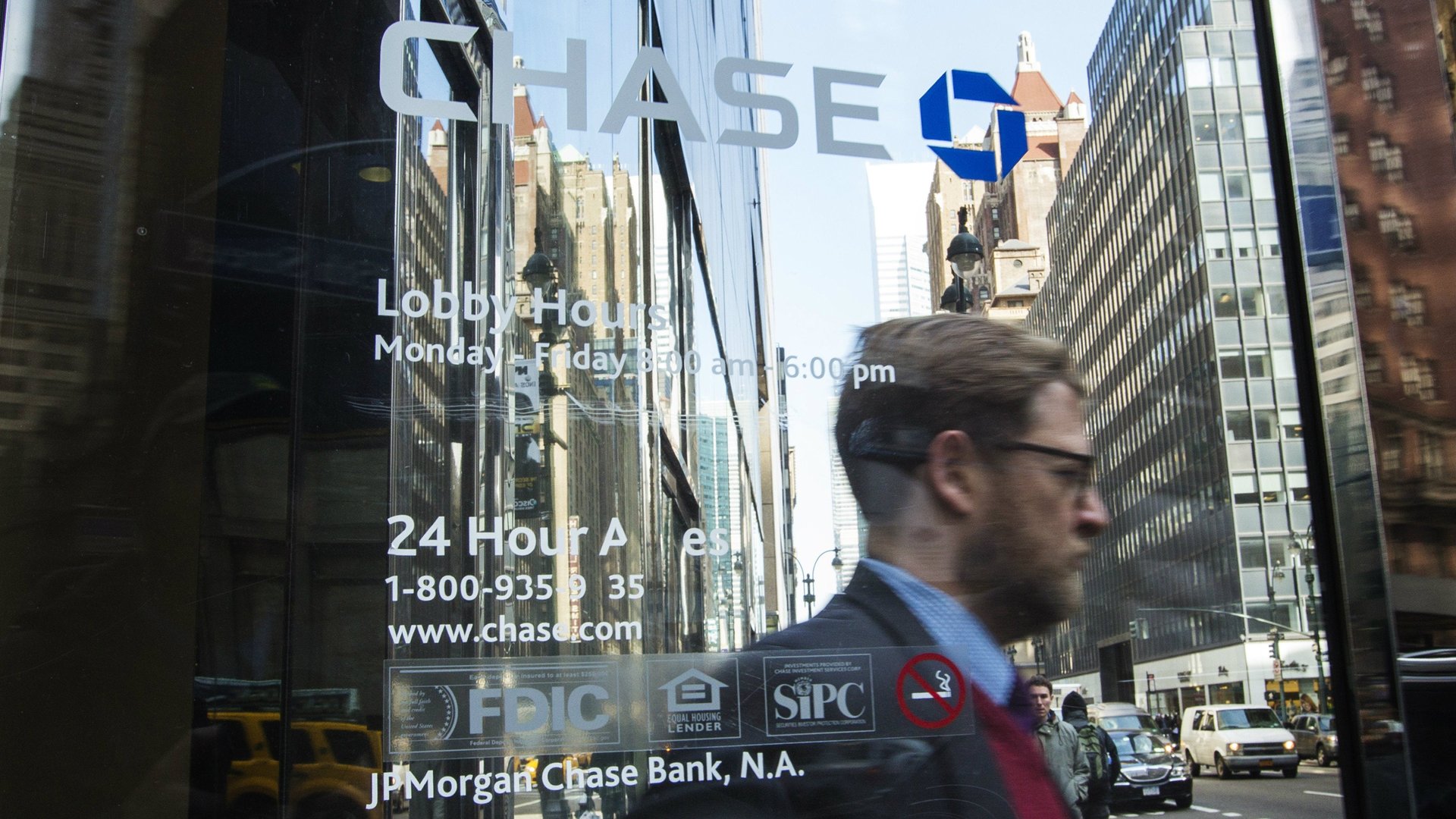Coronavirus is widening America’s wealth gap
The country’s largest bank, JP Morgan Chase & Co, has raised its qualifications for mortgages in response to a growing number of unemployment claims and reduced economic activity across the US. But the changes, along with similar policies at other financial institutions, will likely increase the wealth gap between white Americans and non-white Americans.


The country’s largest bank, JP Morgan Chase & Co, has raised its qualifications for mortgages in response to a growing number of unemployment claims and reduced economic activity across the US. But the changes, along with similar policies at other financial institutions, will likely increase the wealth gap between white Americans and non-white Americans.
Home ownership is a major component of growing wealth and building equity, but black home ownership was already at multi-decade lows well before the pandemic. In the fourth quarter of 2019, the US Census Bureau estimated only 44% of black families owned their homes, about the same rate as it was in 1980. And in 2010, the Federal Reserve found the average credit score of African Americans was 677. Every other racial group had an average credit score above 700, on a scale of 300 to 850.
A Chase spokesperson confirmed that starting April 14, new mortgage applicants will need a minimum credit score of 700 and a down payment of 20%. Refinancing applications for non-Chase mortgages will also need the same score. Chase didn’t disclose its previous lending standards but the average downpayment for first-time home buyers is around 6%, according to a 2018 survey from the National Association of Realtors. The changes were first reported by Reuters.
Several other banks have also announced tightened requirements for new mortgage applicants and other loans in response to concerns about defaults, late payments, and reduced housing sales as well as less liquidity due to forbearance requests. More than 22 million people have filed for unemployment benefits in the last four weeks.
Wells Fargo increased the minimum credit score for new applicants for its home equity loans to 720. During the company’s first quarter earnings call on Tuesday, CEO Charlie Scharf said Wells Fargo had “deferred over 1 million payments representing almost $2.8 billion of principal.” John Shrewsberry, the bank’s chief financial officer, also said the deferred payments were “disproportionately auto and mortgage.”
Flagstar Bank, a mid-sized bank based in Troy, Michigan, also increased its minimum FICO score to 640, but a spokesperson said the change was made several weeks ago. The company also increased its credit score for Federal Housing Authority (FHA) loans to 660, and raised to 680 the score required for loans backed by the US’s agricultural and veterans departments. FHA loans are designed for borrowers with low-to-moderate incomes, with lower minimum down payment and credit score requirements compared to conventional loans.
Better.com, a commission-free online home loan provider established in 2016, increased its minimum credit score for new mortgage applications to 680. While the digital-only lender is still offering jumbo loans, a type of mortgage financing that is not guaranteed by Fannie Mae or Freddie Mac, the company says it is no longer lending to anyone whose loan is greater than 80% of the value of the home. Navy Federal Credit Union, which serves members of the country’s armed forces, confirmed it is currently not offering FHA loans.
Home equity can serve as an important source of capital for funding personal economic recovery, education, or a new business, as well as a source of wealth for future generations. Discriminatory housing practices — including screening by rental and sales agents as well as denying or overcharging for necessary services — are a major reason why it is estimated that for every $100 in wealth accumulated by white American families, a Yale study found black families only have $5.04.
One reason African Americans are more likely to have lower credit scores and damaged credit histories is they are targeted by predatory, high-interest loans that often lead to late payments and defaults. They are also often subjected to discriminatory policies from banks, including lack of access to branches, and rejections from conventional loans due to districting policies by the FHA that poorly rated minority neighborhoods.
Even when controlling for factors like an applicant’s income, the amount of the loan, debt-to-income ratio, type of lender, and even the neighborhood of the property is, African Americans have been disproportionately denied mortgages by lenders. At a time when it’s challenging enough to buy or sell a home due to social distancing guidelines, these newer changes in mortgage policies will make it even more difficult for many black first-time applicants to access funding. It’s an especially cruel position to be in when historically low interest rates means credit is cheaper than ever.